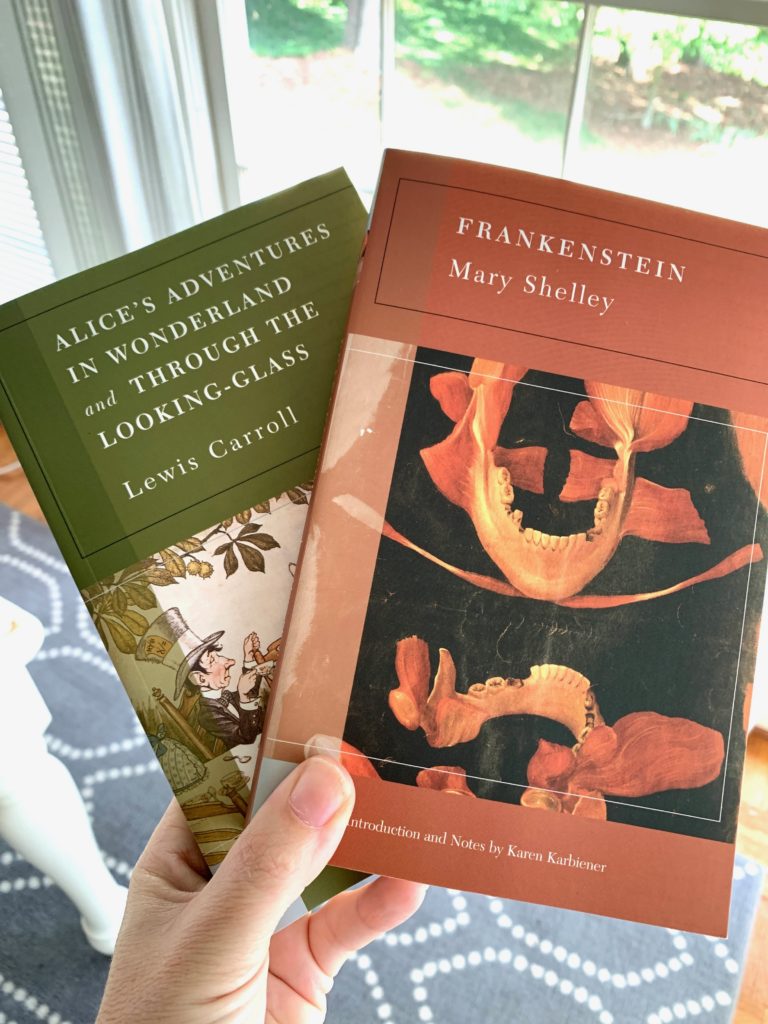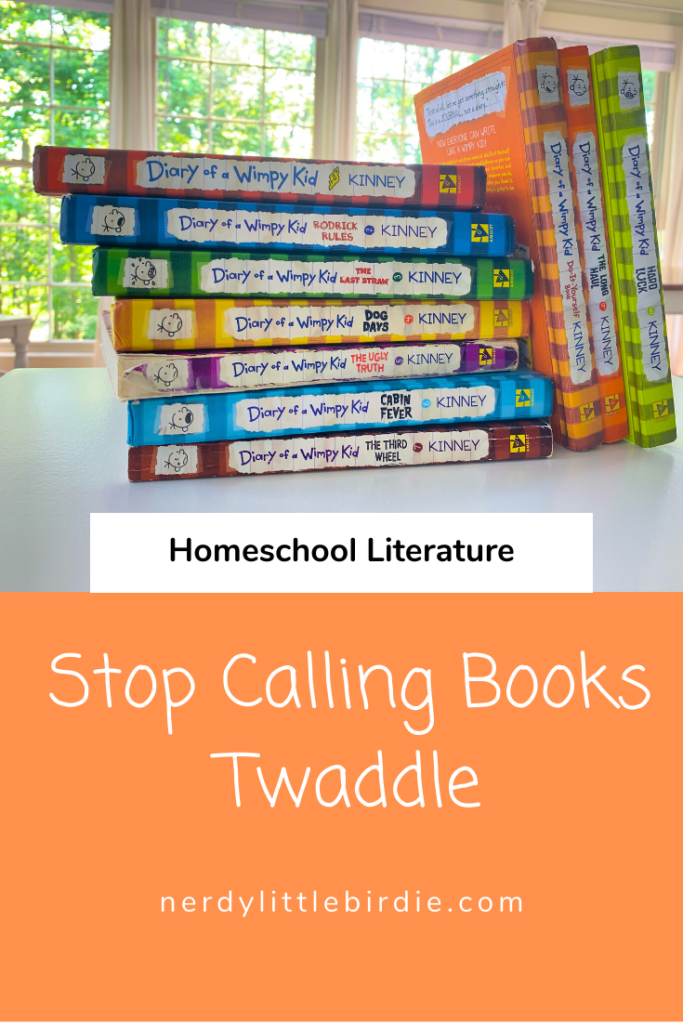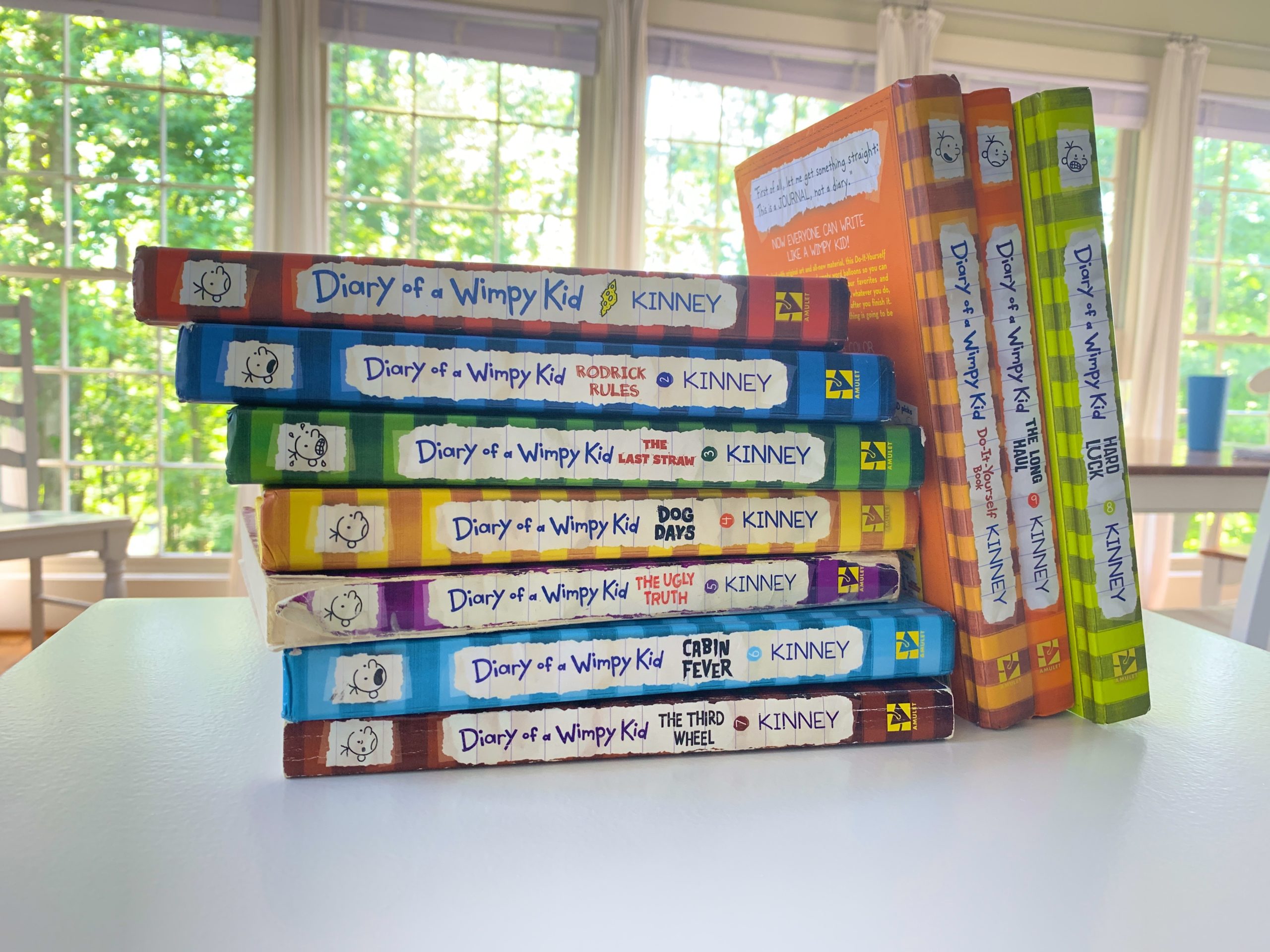There is one word within the Charlotte Mason homeschool community that spurs me to dust off my soapbox: TWADDLE. When I see Diary of a Wimpy Kid or Captain Underpants declared as twaddle, I can’t help myself. I’m compelled to brandish my Swiffer dust wand over my soapbox and step right up on it.
In my mind there is no such thing as twaddle. And if there was, who gets to decide that for someone else?
“I’m the parent; I get to decide.”
That’s one argument as a home educator, and I suppose that argument works in this situation if you’re more interested in obedience and compliance. But what if you’re more interested in your child feeling valued as an individual and that they get to have their own experience with reading?
‘Twaddle’ is book shaming
When we call a book our kids are interested in ‘twaddle,’ that sends an implicit message that what they value is not worthwhile because it’s not what we (the parent) value. This undermines a child’s ability to develop an authentic relationship with literature and their right to have their own experience with books.
If I want my kids exposed to the type of books I value, then its on me as the adult to figure out a healthy way to do that, to pass on those values in a way that doesn’t degrade or demean, explicitly or implicitly, the books they like at this particular stage in their life.
One easy way to do this is through read aloud time. Simply read to them. They still get to read what they want, but you also come together as a family to explore other titles and genres too.
This is how I introduced my kids to The Hobbit/LoTR and the value I place on knowing LoTR nerd language. When I say, “What’s taters, precious?” they will get it.
My kids read all of the Diary of a Wimpy Kid they wanted. And Captain Underpants. Big Nate. And Zombie Butts from Uranus. (Oh yes, it’s a real book.) I joyfully bought the books. We celebrated a new Wimpy Kid release day by cancelling all other school work, heading to the bookstore to get the book, and then spending the rest of the day curled up with snacks, reading.
We can value their experience and our own. It isn’t mutually exclusive.
Shaming won’t transfer values
The best way we can hope our children will adopt some of our more important values is through connection, not coercion. Definitely not through shaming. Coercion and connection can’t exist side-by-side. When we dismiss a book as twaddle, we are not seeking connection. We are not trying to understand something from our child’s point of view. If we tried to understand that, it might look something like this…
What is it about this story my child likes so much?
Why are they curious about it?
What’s valuable about it to them?
How can I open my mind to see this in a different way?
I picked the first Wimpy Kid back up a few months ago just to read it with fresh eyes now that my kids are in high school and beyond, to see what’s of value in it.
I noticed a strong narrator’s voice is introduced on the very first page. What makes it so strong? Why the ALL CAPS words? (I know NOTHING of using all caps for emphasis on my blog.)
I saw all sorts of discussion questions just from the very first page.
Why would having a diary make a boy a sissy?
The narrator doesn’t want to write about his feelings. Why not? What’s wrong with acknowledging our feelings? Maybe boys express their feelings in different ways than writing about them? That could be valid too. Would it help people to acknowledge and name their feelings, regardless of writing? Do boys receive different messages about their feelings than girls?
Seriously, you guys, that’s some deep discussion just from the first page.
The topic of bullying is raised on page three. What is a bully? Can people who aren’t bullies sometimes act like a bully? Do you have to do it over and over to be a bully? Could the narrator be a bully given the way he’s talking about people so far? Hmmm, we’ll have to read more to find out.
How do the drawings add to the story? Do the drawings add enjoyment for you? What do they do for you? For me personally, the “GAAH!” drawing on page 4 really sends home the feeling of the moment. But now I’m wondering, why is the narrator so judgmental and unaccepting of people? He’s already called people morons, gorillas, the character drawings are particularly unflattering. Is middle school really so focused on accepting or rejecting people based on looks, money and popularity? What do you think of that?
“Gorillas who need to shave twice a day.” Metaphors in action! With added humor.
All of that by page seven.
Forcing Classics Isn’t Necessary
Can you open up and see a book from a different perspective?
If we want our kids to learn to be flexible thinkers, we need to model it. If we want our kids to grow into self-directed learners, we have to stop controlling so many areas.
As my kids got older, I could see how controlling their book list was simply unnecessary. I didn’t need to dictate what they read in order for them to grow into someone who enjoys quality stories.
A trip to Barnes & Noble last summer highlighted this. These are the books my sixteen year old picked out. The same sixteen year old who read tons of Captain Underpants and comic books.

Forcing classics on them wasn’t necessary.
Instead, here are three things that were necessary:
- Valuing my sons’ experience as readers.
- Figuring out how to support their love of reading.
- Connection, not coercion.
Research points to mutually positive relationships during an activity promoting a child’s eventual adoption of the value. What would a mutually positive relationship around reading look like from your child’s point of view? Would it look like calling their books twaddle? Or would it look like something else?
Heather
Christine is on the same page. I love that she even linked Walter the Farting Dog because I bought that same book for my kids when they were little. I somehow missed I Need a New Butt and wonder if it’s too late for my high school senior?



